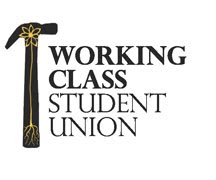The Working Class Student Union is hiring! Our organization supports and advocates for working class, first-generation, and non-traditional college students. We do this by helping members of the UW-Madison campus to embrace class diversity. If you are interested in working for our organization and promoting our cause, you can apply to be our Communications Director or Outreach Director.
Our Communications Director position includes managing our organization’s publicity. The Communications Director serves as the main media contact and prepares press releases. The position also includes responsibility for promoting WCSU’s events through various modes of advertising. The Communications Director keeps track of the organization’s history and past work and prepares agendas and other necessary materials for officer meetings.
The Outreach Director is responsible for sorting and distributing the organization’s mail and sending a weekly listserve style email to members. Also, the Outreach Director fosters relationships with other campus organizations, as well as University Housing, private housing, the Greek system, and other organizations to schedule WCSU’s events and educational workshops.
Both positions are required to hold at least ten office hours per week. The total time commitment for both is about 20 hours per week. Both positions pay $9.19 an hour. Applications are due this Friday, March 25th at 5:00 PM. Those interested should contact wcsu.president@gmail.com for an application form.
These positions are a great way to get experience for a selective program or professional school and look great on an application or resume. They are a great way to earn some money while making a difference, doing something interesting with flexible scheduling. If you are passionate about helping others and helping better your campus community, consider applying for one of these positions!



